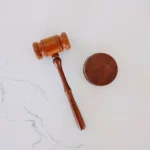Cannabis is a potent herb with numerous health benefits. With the rise of legalization in many states, more and more people are embracing cannabis therapy to manage chronic ailments and pain-related conditions. Researchers in the medical sector reveal that apart from other medical benefits, cannabis contains healing properties that might help treat seizures by affecting the nervous system.
However, it is still a contentious topic with many fallacies and contradicting arguments. Some medics report that cannabis increases spasms and intensifies seizures. In contrast, other experts state that weed helps relieve the intensity and frequency of seizures. Thus, intense research is currently held to establish the link between cannabis and seizures. Even though people report positive cases of cannabis use, there are a few who experienced an increase in spasms after smoking weed. In other cases, CBD oil with strong potency has been used to treat epilepsy successfully.
The major problem in gaining conclusive evidence of cannabis’s impact on seizures is a lack of consistent clinical research. Since cannabis has been illegal for many years, the research surrounding this subject is not quite extensive. But clinical studies are steadily increasing with the current legalization in the USA and many other countries globally.
This article discusses the effects of cannabis on seizures and shares research insights to help you understand the connection.
What Research Says About Cannabis and Seizures
Research on cannabis for treating seizure disorders began around ten years ago in the USA due to the onset of hemp legalization. Studies concentrated on CBD and low THC concentrations because of their medicinal purposes.
The interest in cannabis use for seizures is explained by the earlier observation that cannabis contains analgesic properties and helps manage many health conditions, including epilepsy. The CBD compound interacts with the CB1 and CB2 receptors in the ECS – endocannabinoid system – in the human body. These receptors send signals to the brain, and it releases specific reactions. In this case, the effects prevent convulsions and reduce the frequency of seizures.
Furthermore, researchers established that cannabis is a neuroprotector for any seizure-related disorder. It is imperative to note that CBD products contain minimal THC concentrations of around 0.3% or less. The THC compound also binds to the CB1 receptor in the ECS and causes immediate relief from cramps due to seizures. Thus, the active cannabis compounds work in synergy to produce healing effects.
According to studies, the inconclusive research regarding cannabis and seizures is generally explained by the absence of professional standardization in the medical sector. Yet, preliminary findings of ongoing modern findings reveal that different ratios of CBD to THC effects positively affect spasms, while others are non-applicable.
The Effects of Cannabis on Seizures
As mentioned above, research was done with different patient populations and revealed the positive effects of cannabis on seizure conditions. This led to the production of medications infused with cannabis to help manage epileptic manifestations. For example, Epidiolex is a drug containing CBD, which is the only FDA-approved drug to date. It is a popular medication for people with seizure-related conditions such as epilepsy, tuberous sclerosis, Dravet, and Gastaut syndrome.
Let us explore how CBD oil acts to stop seizures. Below are legit findings from clinical studies that support the positive effects of medical cannabis:
- In 2016, patients in Canada with uncontrolled epilepsy were subjects of a research study. They self-medicated using cannabis treatment, and the researchers reported great improvements. For instance, the seizures were more controlled, and the patients were stress-free and slept better.
- CBD-infused medication with zero THC helps children diagnosed with Dravet syndrome. Cannabis medication is effective in reducing the frequency of seizures. Maa and Figi’s case study documented the successful treatment of a 5-year-old using a cannabis extract from a CBD-rich strain.
- The CBD oil extracted from hemp seeds contains minimal THC levels. Usually, the seeds are thoroughly washed before being processed. Thus, CBD-infused oils are safe for treating young children, adolescents, and adults. However, CBD medication is quite expensive because of the challenges in finding the right concentration and recommended dosage. Thus, the best consumption method is using hemp oil.
These observations show that CBD contains therapeutic effects that positively impact seizures. Coupled with other therapeutic uses of CBD and cannabis overall, one can conclude that weed is indeed a valuable herb in the medical sector.
Cannabis and Epilepsy Seizures
According to research, cannabis is an effective treatment for patients with epilepsy. CBD, also known as cannabidiol, is the main compound with analgesic properties. Most epileptic patients report positive results after consuming CBD-infused products. For instance, the frequency of the seizures reduces, and the spasms are less painful in some patients.
In addition to the CB1 and CB2 interactions of cannabinoids that can reduce seizure intensity, CBD has anti-inflammatory properties that help reduce seizures. Even though more studies need to be conducted on cannabis, you can get modern research that backs the benefits of CBD, complete with evidence. Below are findings that show the impact of cannabis on seizures:
- Scientists from Israel attest that CBD is an effective remedy for epileptic spasms. But they appeal for further comprehensive research to release the drug’s full potential within stringent regulations.
- Researchers from Canada confirm that cannabis has been consumed for many decades to reduce the frequency of epileptic attacks.
- 2023 studies contain information on recreational marijuana or non-medical cannabis and its effects on epilepsy.

Can THC Cause Seizures?
Many patients with epilepsy are concerned about the potential interactions of THC with CBD that may reduce the therapeutic value of cannabidiol and cause an opposite effect – worsening of seizure symptoms. Those concerns are reasonable, as THC, also known as tetrahydrocannabinol, is a psychoactive element found in the cannabis plant. It gives users a high feeling after smoking. Many cannabis users report minimal spasms while intoxicated. Thus, despite the benefits of cannabis, THC may produce negative effects when it comes to treating seizures.
According to research, THC compound reduces the seizure threshold, which increases the likelihood of a patient having spasms. In contrast, similar studies reveal that THC helps reduce seizure frequency. You can study this information in-depth by visiting https://askgrowers.com/blog/can-weed-cause-seizures.
Thus, the impact of THC on seizures is still under review. Some studies have shown that THC has positive results for some patients with severe cramps, suggesting its anticonvulsant properties. That said, researchers need to perform extensive studies to allow medics and patients to comprehend the benefits of cannabis in treating seizures. So, if you are diagnosed with epilepsy or spasm-related conditions, consult a health expert and be careful when consuming THC products or other psychoactive substances.
Side Effects of Cannabis
Although cannabis has numerous health benefits, it has its risky side as a treatment plan. Therefore, as with any other medication, you must follow the right dosage and administration. Consuming substances with psychoactive effects without a specific directive might harm users.
Some common side effects patients can experience include paranoia, hallucinations, panic attacks, and psychotic episodes.
Conclusion
Cannabis is widely known for its therapeutic effects, and many people are embracing its benefits. Even health experts confirm the benefits of incorporating cannabis into consumers’ treatment and wellness regimens. However, further research needs to be done to reveal the full potential of medical marijuana in treating seizures. The interaction of CBD and THC with the seizure mechanisms in the human organism is not understood well yet, so research and moderation in practical cannabis use are recommended. Self-treatment of seizures is not recommended; physician’s advice and dosing recommendations can make this practice safer and more beneficial for health.
The author of this article is Tia Moskalenko, an expert in cannabis cultivation, use, and research. Tia works at AskGrowers to prepare educational materials about cannabis application in various spheres. She is dedicated to helping people find optimally suited products for safe and rewarding consumption.







